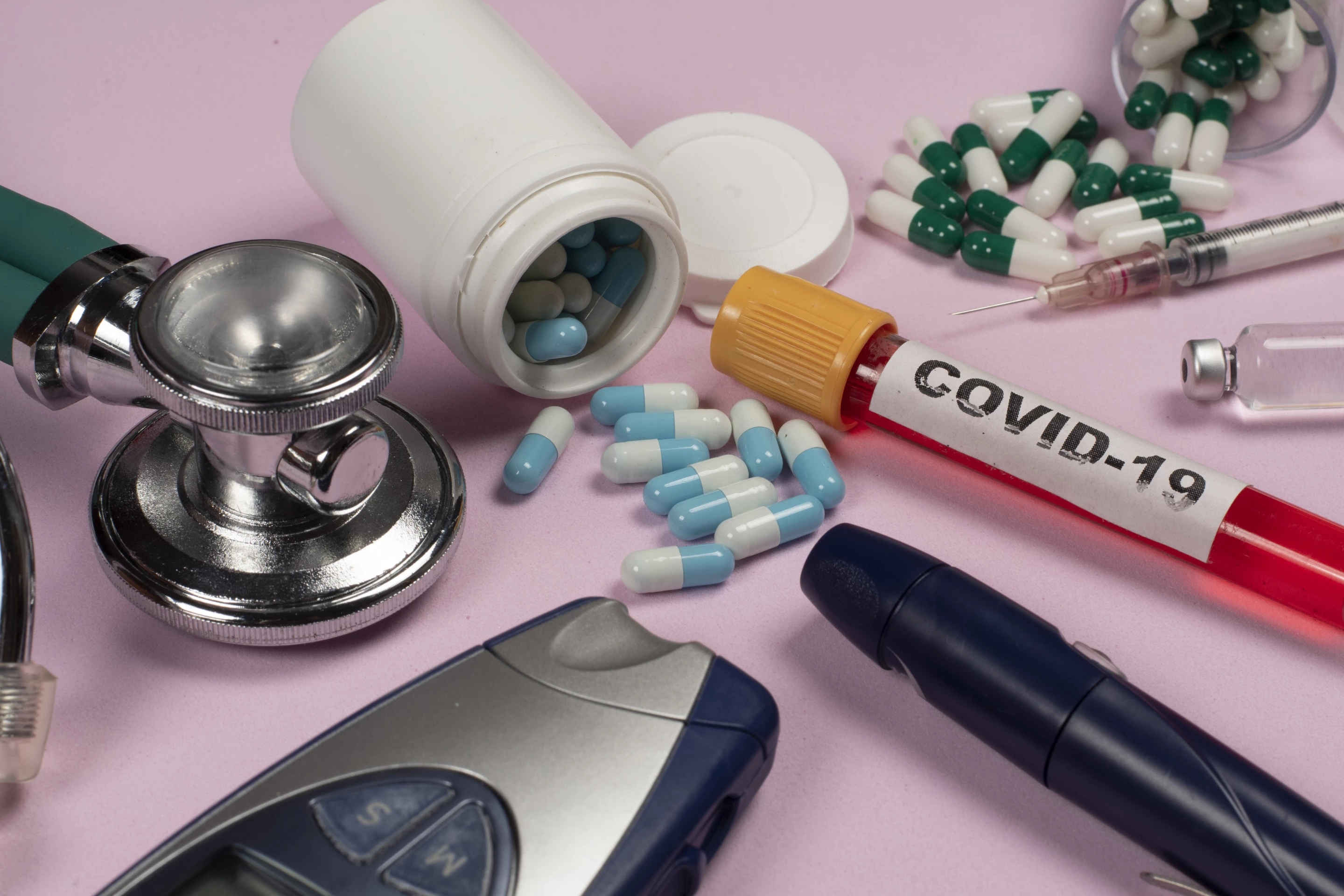At the recent European Association for the Study of Diabetes Annual Meeting two new studies were presented investigating the relationship between COVID-19 in children and new type 1 diabetes diagnoses. The studies came to conflicting conclusions, one suggesting there was a potential link between COVID and new-onset type 1 diabetes, while the other clearly argued against any causal association.
Over the past couple of years researchers have found SARS-CoV-2 infections can cause much more than a passing flu-like illness. Alongside the distinct persistent symptoms associated with long COVID, infections have been linked to higher rates of stroke and heart disease.
But the relationship between diabetes and COVID has been less clear. Alongside studies that often combined type 1 and type 2 diabetes into one umbrella category, some researchers have argued increased testing around the time of COVID infections have simply led to more cases of diabetes being found.
Two new studies, both yet to be peer-reviewed and published in a journal, have reached contradictory conclusions about the link between COVID and diabetes, affirming the lack of clarity researchers still face in understanding this particular association. The two studies focused specifically on the relationship between new-onset type 1 diabetes diagnoses and COVID-19 infections in children.
The first study, from the Norwegian Institute of Public Health, looked at health records from all those under the age of 18 in Norway. Encompassing 1.2 million subjects, the study was looking for new diagnoses of type 1 diabetes any time after a PCR-confirmed case of COVID-19.
Across a two-year period (March 2020 to March 2022), around a third of the subjects in the study tested positive to COVID. Those subjects who tested positive to COVID were found to be 60% more likely to be diagnosed with type 1 diabetes at least a month after infection compared to those with no registered SARS-CoV-2 infection.
Hanne Løvdal Gulseth, lead author on the study, is cautious to stress the limitations of the research. It’s possible plenty of asymptomatic or unreported cases were missed in the data, and the absolute risk of type 1 diabetes was still incredibly low in the COVID cohort. So if COVID is causing type 1 diabetes in children it is only happening on rare occasions.
"Our nationwide study suggests a possible association between COVID-19 and new-onset type 1 diabetes," said Gulseth. "However, the absolute risk of developing type 1 diabetes increased from 0.08% to 0.13%, and is still low. The vast majority of young people who get COVID-19 will not go on to develop type 1 diabetes but it is important that clinicians and parents are aware of the signs and symptoms of type 1 diabetes.”
The second new study looked at a similar large nationwide dataset, this time focusing on health records in Scotland. Here, researchers looked at all new type 1 diabetes diagnoses in people under the age of 35 between March 2020 and November 2021.
Comparing this data to a national registry of PCR-confirmed SARS-CoV-2 infections the researchers found no association between COVID and new type 1 diabetes diagnoses 30 days or more after an infection. On the other hand, the researchers did find increases in diabetes diagnoses within 30 days of COVID.
According to the researchers, from Public Health Scotland and the University of Edinburgh, a closer analysis of the data suggested there is no causal link between COVID and diabetes. Instead, it’s hypothesized the increase in type 1 diabetes diagnoses is due to more people being tested for COVID around the time they present with the initial symptoms of diabetes. So it is speculated that those new diabetes cases were already present at the time of COVID infection.
While a 20% increase in type 1 diabetes diagnoses has been seen in Scotland across 2020 and 2021 compared to prior years, co-lead-author Paul McKeigue said this increase seemed to be growing prior to COVID becoming more widespread in 2021. So it is possible there are other reasons to account for the small spike in diabetes cases over the past two years.
"Our findings show that causes other than COVID-19 infection itself need to be considered in relation to the increased incidence of type 1 diabetes," said McKeigue. "We need to consider what has happened regarding the spread of viruses such as enteroviruses during the pandemic, and whether there are any other environmental factors, such as sunlight exposure and vitamin D levels, that might have altered during lockdown that might also be relevant."
Experts not affiliated with the new studies said both pieces of research are strong despite their differing conclusions. Jamie Hartmann-Boyce, from the University of Oxford, said there are credible reasons why SARS-CoV-2 infections could trigger the development of type 1 diabetes but its also possible other factors may account for these observed associations.
“More data is needed at the population level, to see if there is a sustained rise in type 1 diabetes since the start of the pandemic, and if this is correlated with rates of SARS-CoV-2 infections in communities,” said Hartmann-Boyce. “More lab studies are also needed to better understand the impact of SARS-CoV-2 on pathways contributing to type 1 diabetes.”
Gareth Nye, from the University of Chester, echoes the call for more data. He said COVID-19 is still a vastly misunderstood disease and its links to diabetes are plausible but unclear.
“The finding that a novel virus may increase risk of type 1 diabetes is not surprising considering the current knowledge pool, however, the risk reported in both cases is still incredibly small and the vast majority of the population will not develop the condition,” Nye noted. “However, with lockdown procedures in place in the reported countries we may be seeing an artefact of children being around parents or guardians for a greater proportion of time, with a heightened sense of concern brought about from the pandemic which is why children are being diagnosed so close to a positive test.”




